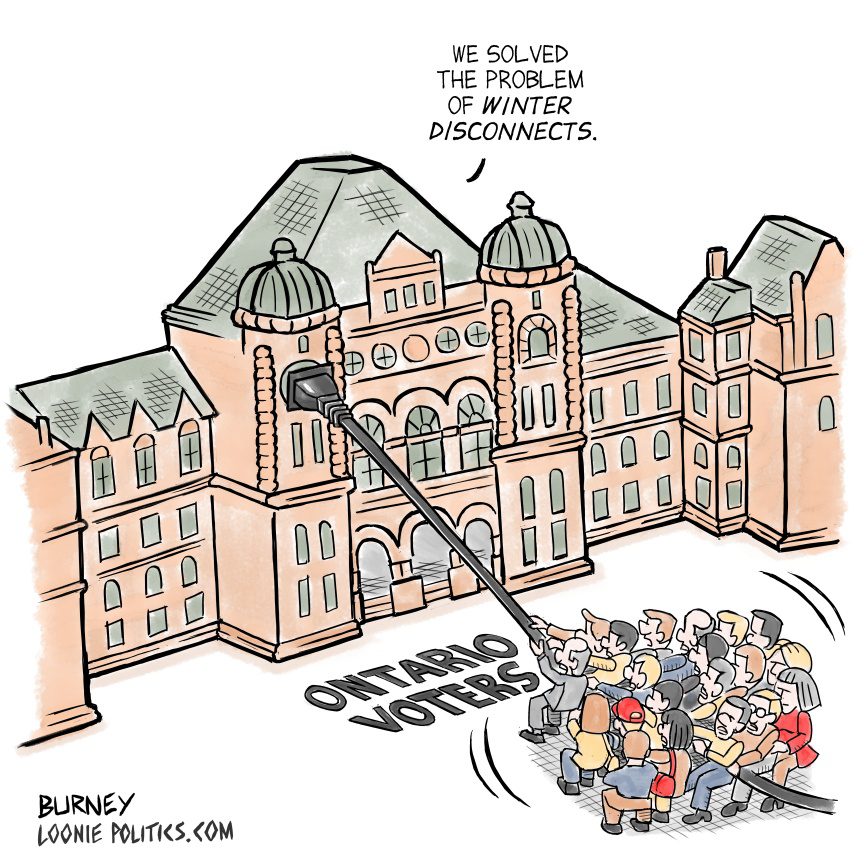On Wednesday of the new spring session at Queen's Park, the Liberals attempted to stanch some of the political bleeding of steadily rising hydro prices by unanimously passing Bill 95, the Protecting Vulnerable Consumers Act.
This new legislation amended the Ontario Energy Board Act, giving the Ontario Energy Board (OEB) the new authority to demand Local Distribution Companies (LDCs) not disconnect Ontarians in arrears for their hydro bills.
The wording of Bill 95 was unclear on many of the details, but the OEB by Thursday afternoon explained how it was going to proceed with the new law, announcing a ban on all disconnections and installation of load limiting devices until April 30. The LDCs were also ordered to uninstall all load limiting devices and reconnect all households currently without power, while also having to waive any costs incurred in the process.
The OEB's order also divulged that there are about 930 households disconnected and 3,000 households with load limiting devices currently. These numbers are substantially lower than the oft-cited-by-the-opposition estimate of 60,000 Ontarian households disconnected last year, but many of those households were likely reconnected in the interim, after spending days/weeks/months without power in the frigid winter months.
Although both opposition parties welcomed the Liberal government's action, they still claimed it was a case of too little, too late.
"Why didn't they time-allocate this bill leading into the Christmas break, well before these winter disconnects would've occurred? Unfortunately there have been thousands of people who have had their power disconnected over this past winter and this all could've been avoided had the government been serious about this back in the fall," said Progressive Conservative MPP and Energy Critic Todd Smith after question period.
"This kind of change has been a long time coming. People are stuck … They're in a situation where they have to make choices they shouldn't have to make. Paying their hydro bill or putting food on the table. Paying their hydro bill or paying for childcare," said NDP Leader Andrea Horwath.
Despite the temporary relief for struggling low-income households unable to pay their hydro bills, the rates continue to steadily climb, making hydro more and more unaffordable for many households.
Premier Kathleen Wynne admitted this week that her government's removal of the 8 per cent provincial portion of the HST on hydro wasn't enough, and promises more relief for ratepayers in the upcoming budget.
However, this week The Canadian Press reported the federal government is in discussions with the Ontario government about the payment of $25 million in damages and $3 million in legal fees a NAFTA tribunal awarded Windstream Energy, after the wind power company sued the federal government because the provincial government put a moratorium on offshore wind development, breaching the three parties' contract. The Liberal government will also be mired in the rehashing of the gas plant scandal in September, when two former Liberal staffers from former premier Dalton McGuinty's tenure go to trial for breach of trust and mischief. And finally, the Liberal's partial privatization of Hydro One and the rapid increase in electricity costs will make this a lightning rod issue for the opposition parties and emotionally charged issue for voters in the runup to the 2018 election.
Written by Graeme C. Gordon






